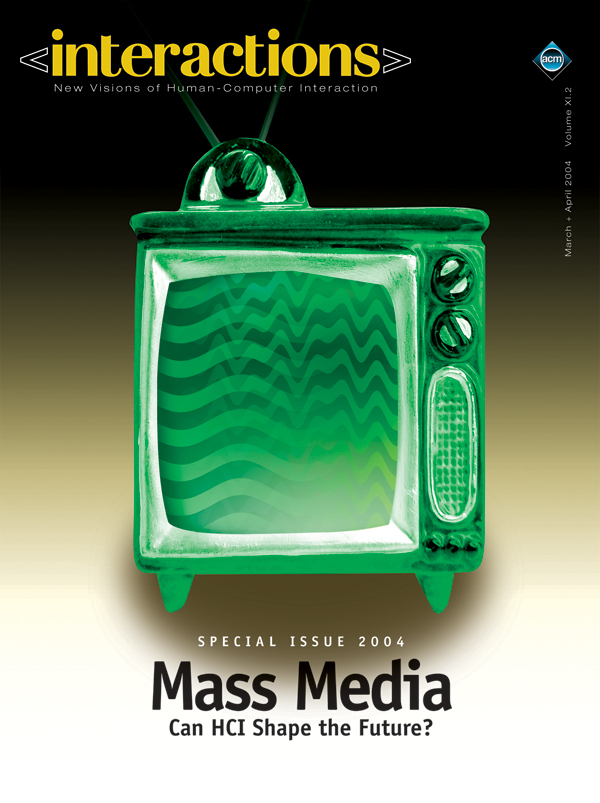Authors:
Anxo Roibás, Riccardo Sala
Imagine a context of ubiquitous communication in which users will be free to choose the most appropriate interface to interact in the digital world [1]. In other words, users will be able to exchange almost any kind of information, with anyone, on any machine, at any place and time. Inevitably, this incoming scenario will affect the TV experience: Users will not only be able to interact with TV programs with their own mobile devices, but also will have access to TV content and formats across these devices and outside the domestic context. But ubiquitous iTV, with the changes in…
You must be a member of SIGCHI, a subscriber to ACM's Digital Library, or an interactions subscriber to read the full text of this article.
GET ACCESS
Join ACM SIGCHIIn addition to all of the professional benefits of being a SIGCHI member, members get full access to interactions online content and receive the print version of the magazine bimonthly.
Subscribe to the ACM Digital Library
Get access to all interactions content online and the entire archive of ACM publications dating back to 1954. (Please check with your institution to see if it already has a subscription.)
Subscribe to interactions
Get full access to interactions online content and receive the print version of the magazine bimonthly.







Post Comment
No Comments Found